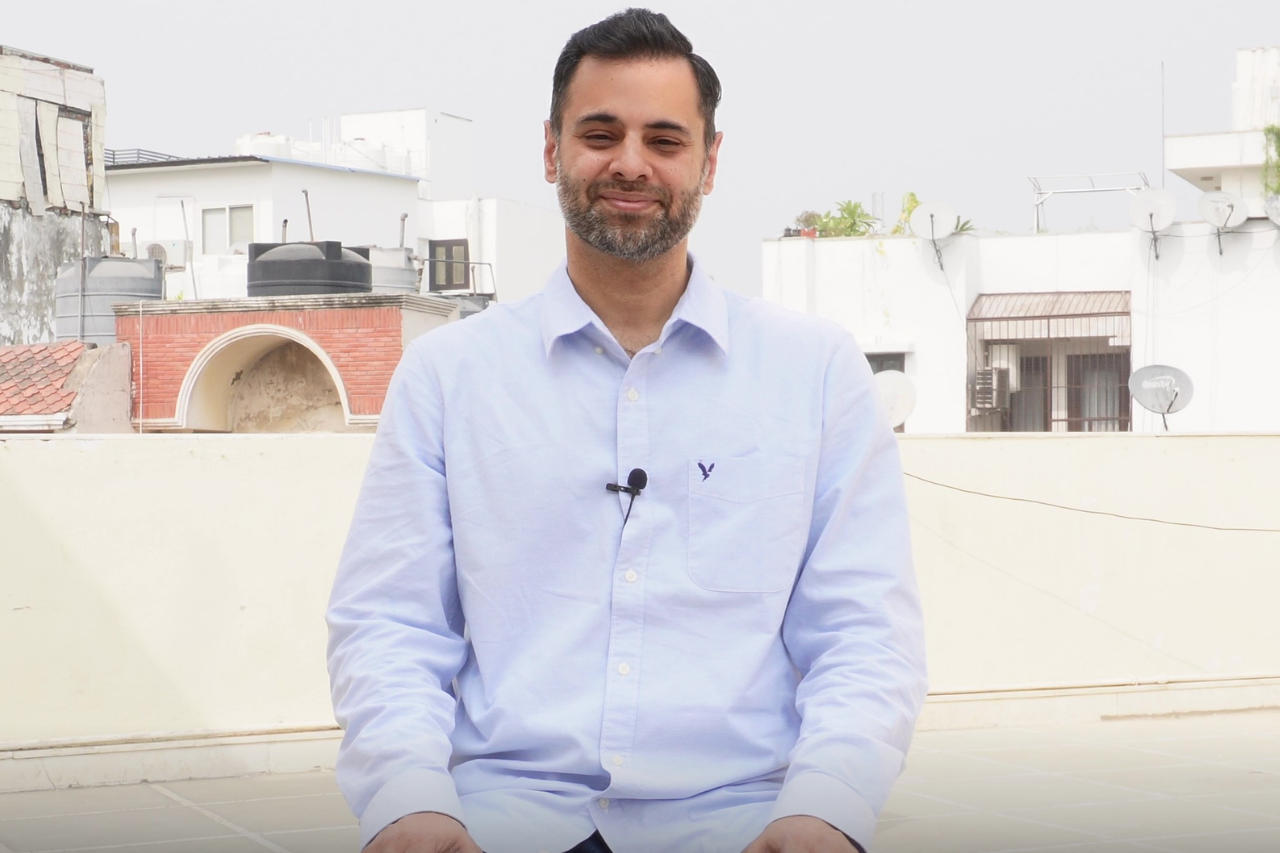Hello everybody, I hope you all are in good health and experiencing peace in daily living. If not, this episode may bring some relief.
A quick announcement before we proceed further. Last week I released my e-book on non-duality. It’s called “The End of Me And My Story.” It contains a collection of thought-provoking essays on the subject of spiritual awakening through the realization of our true nature. If you’re interested and willing to explore this subject in-depth, please feel free to check out this e-book (details are in the description).
Now. The main reason for our discontent in life is the greediness of the mind to cling to pleasure and avoid pain. And for the most part, our continuous struggle is to find a permanent solution to this problem. Isn’t it?
Tell me honestly, is that not the case with most of us? We want a solution to what we think is a problem. Our whole life is a struggle to hold on to the pleasures and avoid pain. What we do not realize is that the happiness we seek in pleasures is nothing but pain in disguise.
For example, we crave sense pleasures, and this craving soon turns into an addiction. Today, the following are considered to be addictive: pornography, smartphone, sex, shopping, food, etc. During my teens, the word addiction only meant substance abuse that showed physical deterioration.
Even a non-addictive habitual craving for something has the potential to cause severe distress in our daily lives. It can even be an idea of recognition and success. That’s because every desire (including spiritual seeking) stems from fear. The fear, in turn, stems from a lack—the lack of wholeness or completeness.
The arising of desires is a futile attempt of the mind to bridge the separation between the individual and the wholeness. The mind repeatedly attempts to end the separation through forced action.
We attempt to become whole by accumulating material possessions. Even the knowledge we gain from an external resource is a material possession. Therefore, there is a relentless chase for knowledge, money, fame, recognition, admiration, etc.
Our mind remains eternally unsatisfied and keeps chasing after sense pleasures. But the pleasures are all transient. And in their absence, the mind becomes restless. It wants to experience the thrill again.
Therefore, some people develop a fatalistic and nihilistic view of life. And their minds keep reinforcing the idea of materialism. They live either in the dead past or a future fantasy.
The unconsciousness comes as horizontal thinking. “I’m unworthy; I’m unloved; I’m incomplete; Something is missing in my life; I need a guru to liberate myself; I need to read self-help books to increase my knowledge; I need to be spiritual; money will solve my problems; non-duality will make me happy.” And the thinking continues to create continuous pain and suffering.
The “I,” “me,” and “mine,” in and of themselves, sustain the illusory separation between the individual and the whole. They are illusions in the mind that maintain a sense of personal identification. The individual or the “objective self” perceived as the owner of the psychophysical organism does not exist in reality.
You may find this thought radical. There’s immediately a defense from the individual, “how dare you say I don’t exist?” It is highly unsettling for the individual to accept this idea, so the ego fights back. It is desperate to prove the “other” wrong. That’s how it feels good about itself – it is its primary survival mechanism.
The ego-mind believes in comparison and thrives in competition. When you compete with others, you create separation, which is suffering by nature.
The ego-mind is the “I-thought” that appears only in contact with an object of experience. It cannot sustain itself for long when left isolated.
However, the experience of “I-thought” appears to be seamless because we continuously engage with objects of experience. These objects can either be physical or subtle, like thoughts, feelings, sensations, and emotions. The ever-changing scenery creates an illusion of continuity of the “I-thought.”
However, there is a gap between two consecutive thoughts, which is incredibly subtle to discern. YOU ARE THAT – “that” that witnesses the absence of the objective self. This concept is prominent in Buddhism, where the timeless gap is seen as the highest wisdom that is always accessible to us.
The “I-thought” has a sticky nature. As I mentioned before, It cannot sustain all by itself. It seeks to find something or some object to cling onto.
Therefore, it creates the following identifications: “I am so and so; I like this; I hate that; I support republicans; I support democrats; I’m religious; I’m spiritual; I’m a materialist; I’m a socialist; I’m an activist; I’m a minimalist; I’m a nonconformist; I’m a believer of non-dualism;” And so on.
Such identifications create conflicts in interhuman relationships because when “they” disagree with my view, “they” automatically become my enemy. Then “they” are responsible for “my” unhappiness. Only when “they” change will I be satisfied. “They” are wrong, and I am right. You see where I am going with this.
I become so attached to my image that I’m unwilling to listen to an alternative point of view. Deep down, it threatens my existence. And reluctant to confront the false image, it’s much easier for me to pin the blame on others. I choose to remain ignorant of my illusory image rather than embracing the discomfort of seeing reality. Hence, I choose bondage over freedom.
For centuries, society has imposed its conditioning on young impressionable minds. Therefore, not understanding the root of conflict, every attempt to unify people using religions, philosophies, ideologies, dogmas, and beliefs has only created more divisions and exacerbated conflicts.
As a result, the individual concludes that it’s his (or her) own inadequacy or lack that contributes to unhappiness. The conditioned mind refused to acknowledge that it’s his conditioning that is creating unhappiness. In other words, he holds himself responsible for his unhappiness and lives with a sense of shame and guilt.
Therefore, he begins a quest to improve himself. That may happen either by seeking fulfillment in the material world or through spiritual enlightenment. There is no such thing as “self-fulfillment” because the objective-self, by its very nature, is pain. The existence of the perceived psychological entity or the “doer” is separation from wholeness.
When the “doer” vanishes, the separation ends, and what remains is wholeness in all its purity. You can also call it pure love or pure consciousness. Therefore, there cannot be any suffering. In the absence of the sense of individual existence, the psychophysical organism operates with a sense of complete surrender.
The individual identification remains even after the above understanding, but there’s no unnecessary involvement in things, and there’s no identification with fears and insecurities that produce prolonged suffering.
The seriousness of things is gone, and the individual moves with the flow of life without clinging to concepts, ideas, and beliefs.
Therefore, the natural consequence of such understanding is that one feels at peace – it does not come as a feeling or a pleasurable sensation, but a deep “knowing” that the individual is simply an instrument of execution (psychophysical organism) through which actions happen as per the cosmic law.
There’s no more concern with right and wrong or good or evil. For example, you may support one political ideology. With this understanding, you don’t see the opposing political party with a different ideology as your enemy but as a group of compatriots who are simply executing the cosmic will. When the separation ends, there’s no fear of the other.
This understanding enables us to see things and situations from a broader perspective. We see with the whole integrated mind rather than a finite biased mind. Therefore, even with differing opinions, one does not consider himself separate from another. Even when we disagree with others, there’s always mutual respect.
It frees us from the load of “doership,” which is the attachment to the outcome of actions and seeing them as “our doing.” We don’t take on the burden of guilt or shame when we fail. We also don’t create pride and arrogance in our success.
Deep down, we know that what happened through us was not “our doing” but simply the cosmic energy executing its Will. The universe is not obligated to our ideas or good or evil; it is simply the movement of energy.
Suffering comes from our refusal to move along with the flow of life. We resist things based on past conditioning, which leads to pain and suffering. An integrated mind or whole mind does not resist anything. It allows for all possibilities without discrimination.
For the whole mind, the individual or the objective self is just another object in this apparent world of happening. The whole mind is an integrated mind that understands that the same consciousness is behind the appearances of “me” and “other.”
The whole mind takes into account the totality of experiencing, including what’s happening in the peripheral vision. In that vision, the individual is not the center point but is seen as one object amongst many. Therefore, there cannot be a personal involvement with what the individual “does.”
"Ultimately, even the observer you are not. You are the ultimate potentiality of which all-embracing consciousness is the manifestation and expression" - Nisargadatta Maharaj.
When the separation (between me and the other) ends, the conflict ends. Life still goes on, and the individual continues with their stories of ups and downs, but the involvement or seriousness in life is gone. Life is neither hard nor easy. It is simply life. Therefore, peace of mind in daily living is the natural outcome.
So I’m leaving you with this quote from Nisargadatta Maharaj, which beautifully summarises this whole topic.
"Between the banks of pain and pleasure, the river of life flows. It is only when the mind refuses to flow with life, and gets stuck at the banks, that it becomes a problem. By flowing with life I mean acceptance - letting come what comes, and go, what goes" - Nisargadatta Maharaj.

